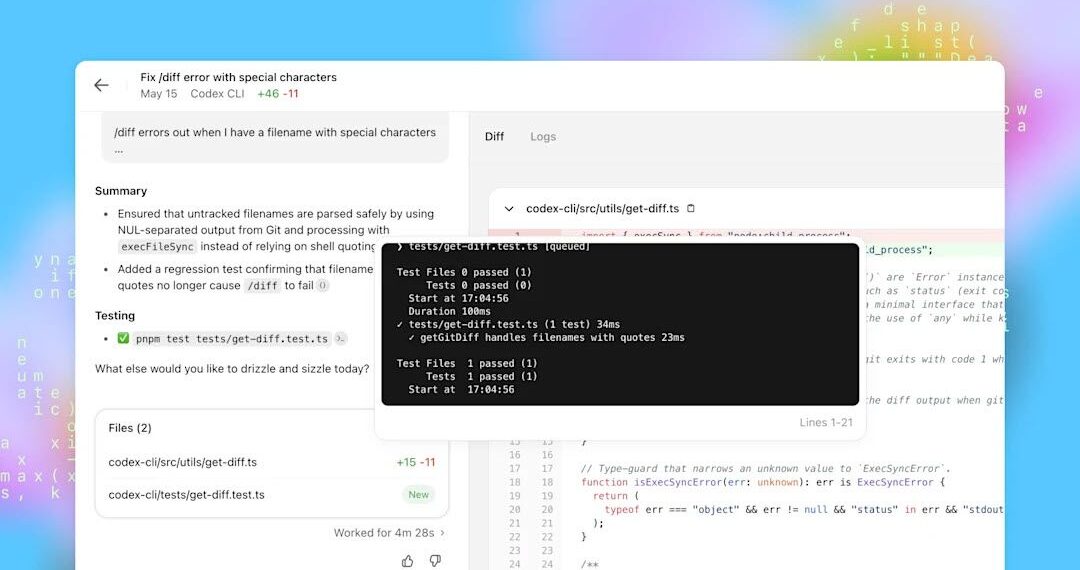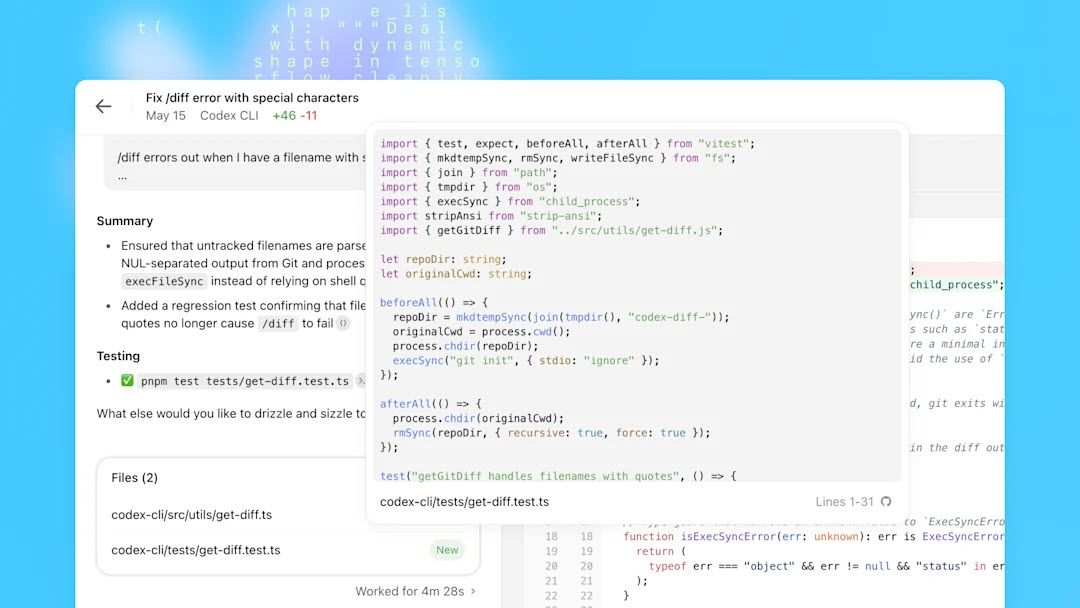Select Language:
ChatGPT has proven adept at converting text prompts into code and explaining it. Now, OpenAI has introduced a new coding agent to ChatGPT that’s sure to excite both developers and non-developers alike.
ChatGPT’s Codex Elevates AI Programming
OpenAI is launching an early research version of Codex, a “cloud-based software engineering agent.” This feature is based on codex-1, a variant of the OpenAI o3 model specially designed for coding and software development tasks. Codex-1 has been fine-tuned to closely match “human coding preferences and standards.”
If you’re a ChatGPT Pro, Enterprise, or Team user, you can find this feature in the ChatGPT sidebar, with Plus and Edu users set to gain access soon. Once activated, you can assign it a coding task by using the Code button or ask questions about your codebase with the Ask button. Below the prompt bar, you’ll see Codex’s task list and its progress.
This innovative agent can handle a variety of tasks on your existing codebase, such as adding new features, fixing bugs, and providing answers to your questions. Each task operates in its own isolated environment pre-loaded with your codebase or repository. Codex can also read and modify files.
According to OpenAI’s announcement, tasks may take between one and 30 minutes to complete, depending on their complexity. You can watch its progress in real-time and even manage multiple tasks at once, all while using your browser and computer as normal.
While ChatGPT can help create code and even produce complete projects for testing, it struggles with software repositories and codebases. Codex’s ability to integrate seamlessly with typical software engineering workflows makes it significantly more beneficial than standard ChatGPT for both companies and individuals managing various projects in repositories.
Codex generates cleaner code that is ready for human review and can be integrated into existing workflows or codebases. It also conducts tests and ensures they pass all specified conditions. Once it finishes a task, Codex commits changes to its environment and provides “verifiable evidence of its actions with citations from terminal logs and test outputs.”
Why Is Codex Important?
Codex represents a significant advancement for professionals across various fields. It enables users to write Excel macros, automate reports, batch edit files, and accomplish tasks that previously required expertise in programming or scripting languages.
While ChatGPT can assist with code generation, it may not always be reliable. A solid understanding of the programming language and debugging principles is often necessary. In contrast, Codex automatically validates its code and runs tests to ensure functionality.
Although improvements are expected with the upcoming GPT-4.1 model, it’s essential to recognize that selecting the right ChatGPT model can impact the quality of the output. A model specifically tailored for coding will generally outperform a more general-purpose one.
For programmers, Codex offers immense value, integrating seamlessly with GitHub repositories. This automation focuses on repetitive tasks and test cases, enabling faster development and deployment of applications without the usual distractions of maintenance and testing that accompany software development.








